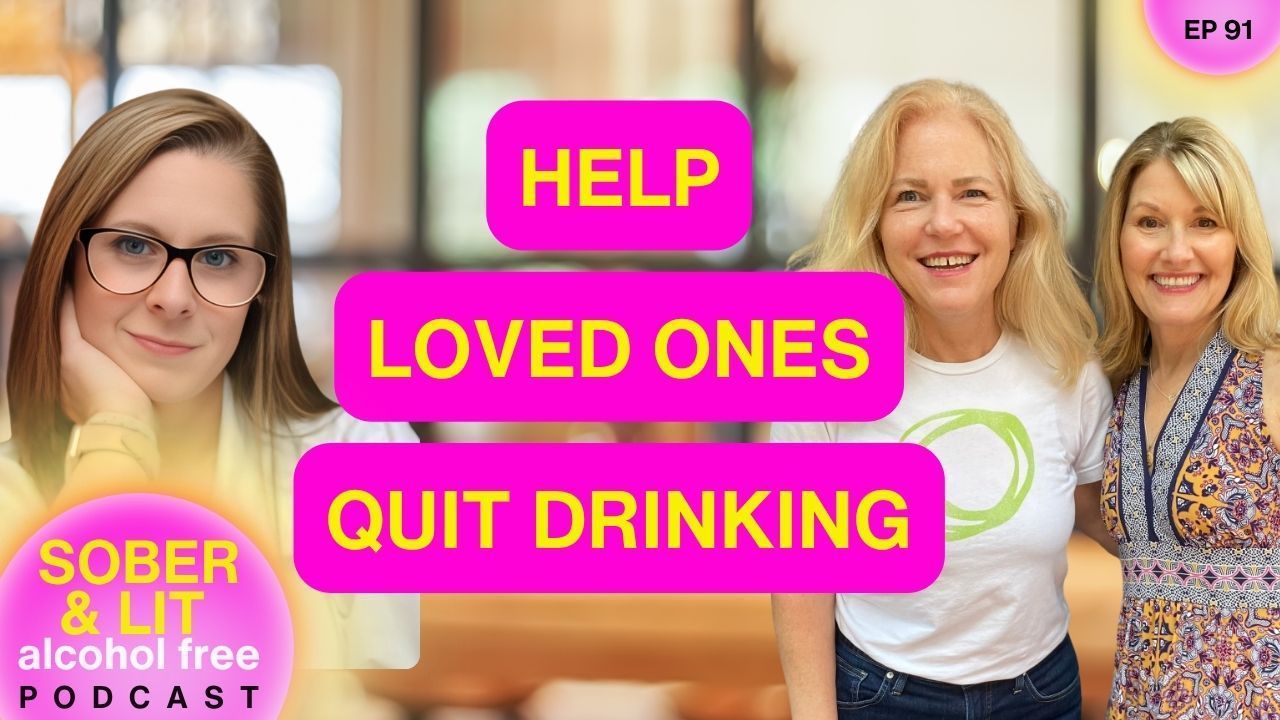Ep. 91 Outsmarting Addiction: Amber Hollingsworth on Strategies To Help Loved Ones
Oct 07, 2025
Listen to the PODCAST Here
Watch the Podcast on YouTube Here 
Outsmarting Addiction: How Compassion, Connection, and Invisible Intervention Help Families Heal
Licensed counselor Amber Hollingsworth shares tangible strategies to support loved ones through addiction—without ultimatums, blow-ups, or becoming the “bad guy.”
Supporting a Loved One Through Addiction: It’s a Family Affair
Addiction rarely affects just one person; its ripple effect touches the entire family. When someone you love struggles with substance abuse, you might feel powerless, worn down by repeated disappointments, or even cast as the villain in your own home. But according to Amber Hollingsworth—licensed professional counselor, master addiction specialist, and creator of the “Put the Shovel Down” YouTube channel—there’s a path forward. Her approach helps families avoid the classic traps of confrontation, tough love ultimatums, and codependency, empowering everyone to heal and thrive together.
Why Tough Love Often Backfires
The impulse to stage dramatic interventions or “kick them out until they hit bottom” is common, but Amber argues that these techniques more often push loved ones further away. She’s witnessed, time and again, how being the enforcer, the rule-setter, or the constant critic actually slows progress—creating resentment and fueling denial. In her work, many clients come to her not to discuss their addiction, but to complain about the family member “making their life miserable.” The addiction gets sidelined while relationships fray.
Amber’s central insight is this: Turning yourself into the “bad guy” makes you the focus, not the problem itself. Instead, as hard as it is, family members need to step back and let the natural consequences of addiction unfold, showing empathy—not anger—when things inevitably go wrong. This moves the responsibility for change back to where it belongs and preserves space for genuine connection.
The Invisible Intervention: Subtle Guidance for Lasting Change
Unlike the confrontational interventions popularized by TV shows, Amber’s “invisible intervention” methodology is all about subtlety, strategy, and timing. Rather than making grand demands, she teaches families to:
1. Step out of the bad guy role: Let the outside world, not you, deliver consequences.
2. Use empathy as a tool: When a setback occurs—even one you saw coming—meet your loved one with compassion, not criticism.
3. Build influence and credibility: See and verbalize your loved one’s strengths, intentions, and values. Recognize them as a whole person, not just an addiction.
4. Match your support to their readiness: If they’re not yet seeking help, focus on helping them see there’s a problem, not pushing them into rehab.
Amber explains that meaningful change happens when people feel safe, supported, and empowered to make their own decisions about recovery.
Positive Reinforcement and the Power of Connection
Many families make the mistake of putting all the focus on what’s wrong—missing the importance of celebrating their loved one’s positive qualities or efforts, no matter how small. Compliments, reinforcement, and simple acknowledgment (delivered lightly and authentically) can go a long way in building trust. Sometimes, even a casual “drive by” comment—“Hey, I noticed you went for a run this morning”—means more than a heavy-handed lecture.
Positive connection is the antidote to addiction. People often turn to substances to fill a void, soothe pain, or feel a sense of belonging. When families offer genuine connection, they help fill that need in healthier ways, making recovery a less lonely proposition.
When and How to Set Boundaries
Of course, support doesn’t mean sacrificing your own wellbeing. There are moments when stepping back—either emotionally or physically—is necessary, especially in cases of abuse, theft, or when the situation threatens other family members. Amber’s advice: set boundaries based on what you need for your own safety and sanity, not as a punishment or out of misplaced hope it will spark change. Sometimes, “putting your own oxygen mask on first” is essential.
Moving Forward: Compassion is Not Weakness
Supporting a loved one through addiction is one of the hardest challenges a family can face. Amber Hollingsworth’s wisdom, distilled from both professional experience and her own family story, offers a roadmap that avoids common pitfalls. Ultimately, her message is simple but profound: connection, empathy, and strategic influence—rather than force—give your loved one (and your family) the best chance for healing. Remember, you’re not powerless, and together, recovery is possible.
For moe insights, check out Amber’s free resource-rich YouTube channel PutTheShovelDown
______
Ruby Williams at Freedom Renegade Coaching https://www.freedomrenegadecoaching.com/
Follow Coach Ruby: @rubywilliamscoaching
Email: [email protected]
Grab your copy of our FREE WineFree Weekend Guide to help you on your alcohol free journey. https://www.freedomrenegadecoaching.com/WineFreeWeekend
